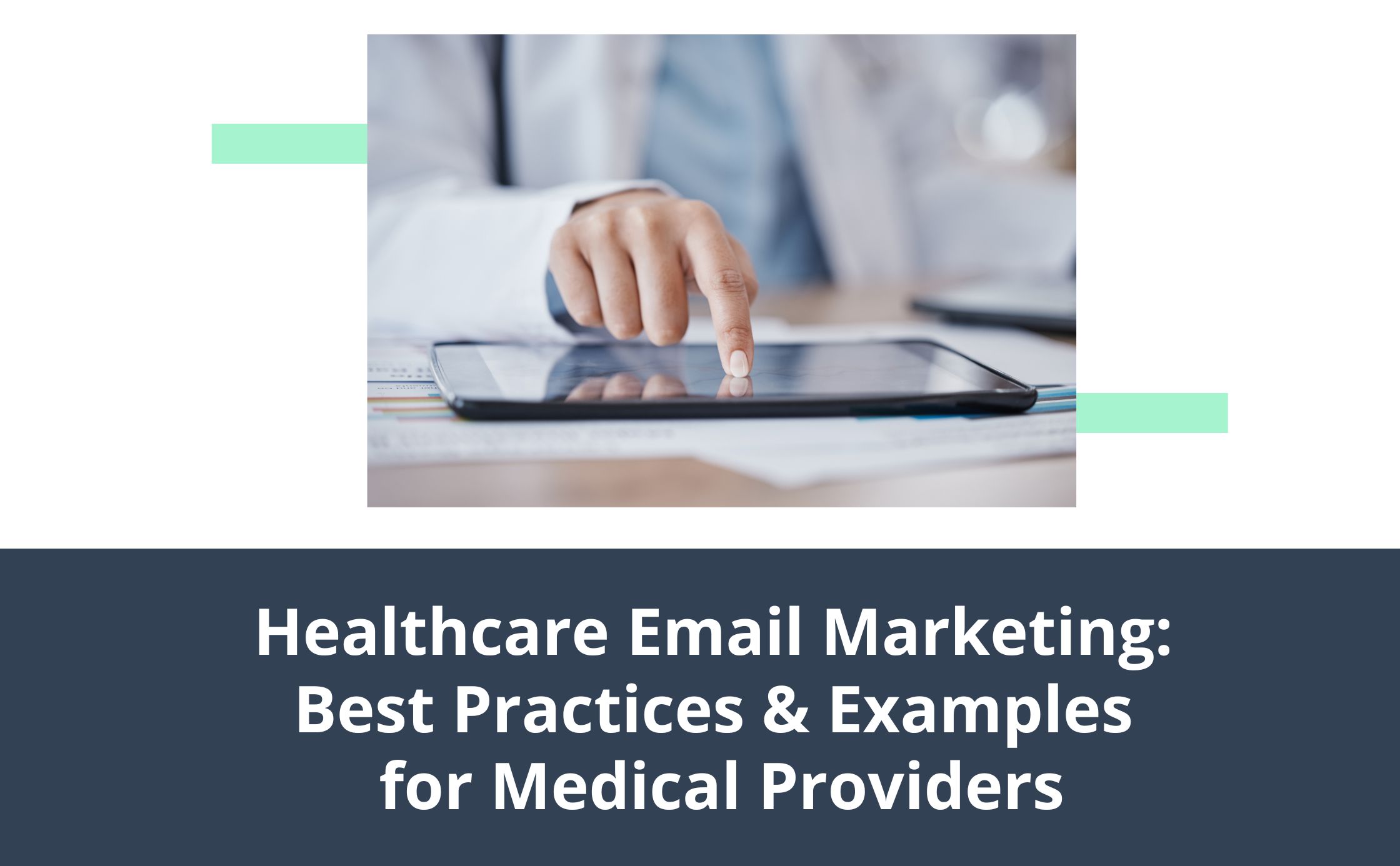Email marketing is one of the most powerful marketing tools small businesses in the healthcare space can use. Whether you own a local nursing home or a med spa in the area, there are creative ways you can leverage email marketing to build stronger relationships with your target audience. If you aren’t currently using email marketing to connect and engage with your audience, you risk losing your business to other competitors in your community.
In this article, we’ll discuss healthcare email marketing best practices and examples you can use to enhance your communication strategy. Here’s everything you need to know to get started.
The Benefits of Email Marketing for Healthcare
Email marketing is a highly effective marketing tool that small businesses in the healthcare space can use to engage, connect, and communicate with patients. Some of the benefits of a well-thought-out healthcare email marketing strategy include:
- Improved patient engagement
- Eliminate appointment no-shows with automated reminders
- Build stronger relationships with your patients
- Improve patient retention
- Personalization and segmentation
3 Healthcare Email Marketing Examples
When developing a strategy, it’s important to consider your goals and to think critically about the customer journey and how each email compliments the experience. Here are three healthcare email marketing examples to consider incorporating in your strategy.
1. Welcome Series
A welcome series is an automated workflow to educate and engage with your new and returning patients. With a welcome series, you can include content highlighting information clients need to know before, after, and during a procedure. You can also use the welcome series to:
- Educate and inform
- Upsell your clients
- Ask for feedback
- Make announcements
Most welcome series last around one to eight weeks, depending on your goal and purpose.
2. Appointment Scheduling and Reminders
Business management platforms like Townsquare Interactive allow you to accept online bookings on your website. After a patient requests an appointment, they will receive an automated email with their scheduling details. You can also schedule reminders and allow patients to reschedule online. This is a great way to enhance the customer experience and reduce the number of no-shows.
3. Post-Procedure Follow Ups
After a procedure or a free consultation, you’ll want to continue engaging with your audience. You can do this by sending them guides or blogs about post-op care. You can also schedule reminders for follow-up appointments. Post-procedure or service follow-ups are great for improving the customer experience and keeping your healthcare business top of mind.
Healthcare Email Marketing Best Practices
Email marketing is an invaluable tool your business can leverage to build connections with potential prospects. The right content can also be used to engage and retain clients with whom you already have a relationship. You can also use email marketing to reach a new prospective audience and teach them about your products or services.
To get the best ROI from your healthcare email marketing strategy, you must be strategic with your approach and ensure your content provides value to your audience. Here are six healthcare email marketing best practices:
1. Segment Your Sends
Segmenting your sends is a great way to add a personalized approach to your email marketing campaigns. Instead of sending an email to the full file, consider how you can adjust your copy to be more relevant for the specific audience. You can segment your sends based on location, buyer habits, or demographics. This is an effective way to improve the effectiveness of your healthcare email marketing strategy.
2. Client Data Protection
Small businesses in the healthcare industry need to protect client data to ensure HIPPA compliance. Automating email marketing campaigns using a business management tool like Townsquare Interactive’s is the best way to protect your client data. Our platform has security features like spam filters, encryption, and two-factor authentication to ensure your client’s data is safe.
3. Aim to Educate, Not Sell
You don’t always need to sell something to see conversions. You can also use your healthcare email marketing strategy to educate and inform your audience. This is a great way to improve your reputation or improve client retention. Engaging and educating also helps humanize your brand and build lifelong patient relationships.
4. Have a Business Management Platform
Townsquare Interactive’s business management platform is an all-in-one tool with everything you need to grow your healthcare email marketing strategy. These tools also have built-in CRM features that track client communication in one centralized location, so everyone on your team will always be on the same page. Investing in a business management platform will ensure you can maximize the effectiveness of your efforts.
5. Focus on Compelling Content
Always focus on quality rather than quantity. This is the best way to build rapport with your readers and highlight the value of your products or services. You can also consider adding high-quality photos, testimonials, and video content to make your content more engaging.
6. Have a Clear Call-to-Action
All of your email marketing campaigns should have a clear and concise CTA. This is the desired action you hope the individual will take after engaging with your content. Depending on the content, your CTA may be:
- Schedule an appointment
- Learn more
- Contact us today
- Sign up now
- Save today
A great way to see which CTA works best for your healthcare is to A/B test your CTAs.
Enhance Your Strategy With Townsquare Interactive’s Business Management Platform
Whether you own a small med spa or an independent clinic, a business management platform is a must-have if you want to grow your book of business. With Townsquare Interactive’s business management platform, you can enhance your email marketing and customer success strategies. Our platform also has automated email marketing templates you can use to maximize the full potential of your email marketing strategy.

